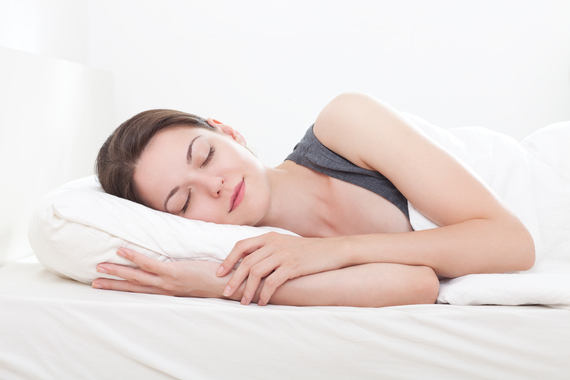Coffee to combat your daily slump and fatigue? No more... the "2016" caffeine shot at work is... sleep! A number of high profile companies such as Google, Zappos, Cisco and Proctor & Gamble have started to offer their employees an alternative to coffee with their nap pods at work (and The Huffington Post also has two nap spaces in its New York office).
If you're one of the lucky ones working at one of these front-running sleep friendly companies: What's the best way to make the most out of your nap? And what if you're not so lucky and need to squeeze your nap into your weekend? Here I outline three rules for the perfect nap.
#1: Do not take a nap if you have trouble sleeping at night
It's not recommended to nap if you experience:
•Trouble falling asleep at night
•Trouble staying asleep during the night, or
•Waking up too early
Of course it's particularly tempting to take a nap if you have trouble sleeping at night, but try to stay awake during the day and keep yourself active as a nap will only exacerbate your nighttime sleep difficulties.
Our brain builds up what researchers call "sleep pressure" during the day as we are awake, peaking right before you fall asleep at night. If you take a nap during the day, you are decreasing your sleep pressure and it'll be harder to sleep through the night. High sleep pressure at night (after having spent an entire day awake) helps you fall asleep, stay asleep and not wake up too early. This means that if you have trouble sleeping at night, it's particularly important to have a high sleep pressure at night.
#2: Decide on how much time you have for your nap
If you can easily sleep at night, a nap can be a very effective way to increase your attention, mood and learning with a nap. But how long should your nap be? It's recommended to pick one of two types of naps:
•A power nap: A maximum of 20 minutes to prevent you from going into deep sleep. The reason to prevent deep sleep is that waking up out of deep sleep is unpleasant and difficult. This shorter nap will only contain light sleep, making it easier to wake up and it will still have a positive impact on your attention and concentration levels for up to three hours after the nap. Time well spent!
•A recovery nap: This nap is much longer: It's recommended you set an alarm ~90 minutes after you'll (roughly) fall asleep to ensure you get a full sleep cycle. This nap will contain light and deep sleep, and maybe even some REM (dream) sleep. Such a longer nap has a number of positive effects on your attention, memory, mood and physical health.
#3: Don't take a recovery nap on Sunday
You might not have the opportunity for naps during the week and might have to squeeze them into your weekend. The long recovery nap is great, but can backfire on a Sunday. Why? Any type of nap will diminish your sleep pressure at night, but a long recovery nap can reduce your sleep pressure significantly more than a short nap. The issue with Sunday night is that many people already have trouble falling asleep, given the stress associated with Mondays, and needing to get back to work. On top of that many of us sleep in on Sunday morning, which means our brain has had less time to build up sleep pressure across the day. If you then add a recovery nap on top of that, your brain might be wide awake come Sunday night. Reserve the recovery nap for a Saturday when you might stay up a bit longer anyway.
Two final points about naps:
•Time them well: preferably around 2-3PM as this coincides with a "dip" in your biological clock and it'll be easier to fall asleep. It also allows enough time to build up sleep pressure after the nap so that you can still fall asleep at night.
•Get active afterwards: many people feel groggy after a nap and maybe even worse than before their nap. It's natural to not wake up out of a nap as energized the way you wake up in the morning, don't worry. Just ensure you get bright light and some light physical activity after the nap to give yourself energy and dissipate the groggy feeling. It WAS time well spent!
